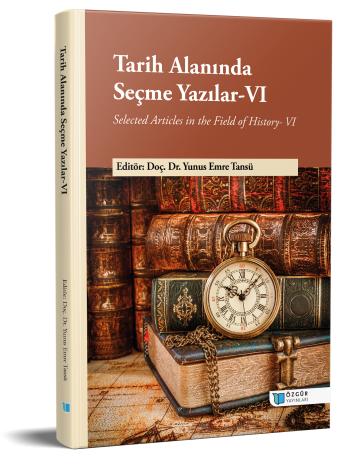
Adaletnâmelerde Vergi Hükümleri (I. Ahmet Dönemindeki Adaletnâmeler Üzerinden Bir Tahlil)
Şu kitabın bölümü:
Tansü,
Y.
E.
(ed.)
2023.
Tarih Alanında Seçme Yazılar-VI.
Özet
Sanayi öncesi tüm tarım toplumlarında olduğu gibi Osmanlı ekonomik sistemini de genellikle toprağa bağlı olarak toplanan vergiler oluşturmaktaydı. Para ekonomisinin yeterince gelişmemiş olduğu Klasik Dönemin şartları vergilerin doğrudan devlet tarafından toplanmasını engellemekteydi. Bu yüzden devlet vergileri toplaması için çeşitli yönetici, kadı ve askerleri görevlendirmişti. Vergi toplayanlara devlet hazinesinden doğrudan para çıkmaması için maaşlarını da halktan belirlenmiş miktarda vergi olarak toplama hakkı verilmişti. Vergileri toplayanlar zaman zaman devletin verdiği yetkiyi kötüye kullandığı, halka zulmettiği ve fazladan vergi aldığı vaki olabiliyordu. Bu tür davranışlara karşı padişahlar tedbir almak amacıyla adaletname adı altında hükümler yayınlamışlardır. Adaleti emreden bu hükümlere adaletname denilir. Bu hükümler ile ilgili birçok çalışma yapılmıştır. Ne var ki Adaletnamelerle ilgili yapılan bu çalışmaların çoğunda konu genel çerçeve içerisinde ele alınmış olup adaletnamelerin belli bir dönem içerisinde ele alınıp incelendiği çok az çalışma vardır. Halbuki her dönemin kendi özel şartları mevcut olup bu çalışmaların dönem şartları açısından da tahlil edilmesi anlaşılmalarına önemli ölçüde katkı sağlayacak bir unsurdur. Bu sebeple bu çalışmada Adaletname örnekleri içerisinde I. Ahmet döneminde yayınlanan fermanların vergilerle ilgili hükümleri tahlil edilmiş anlaşılmaya çalışılmıştır.

